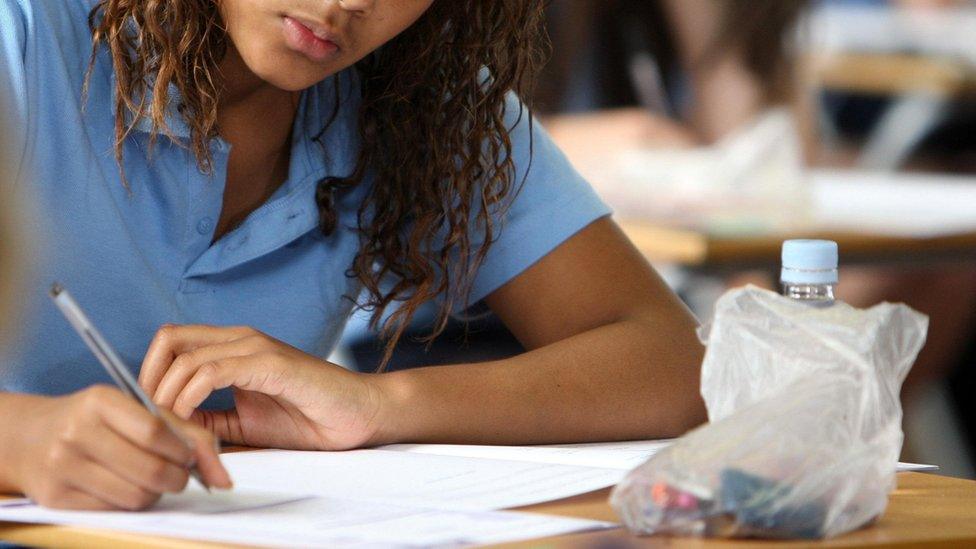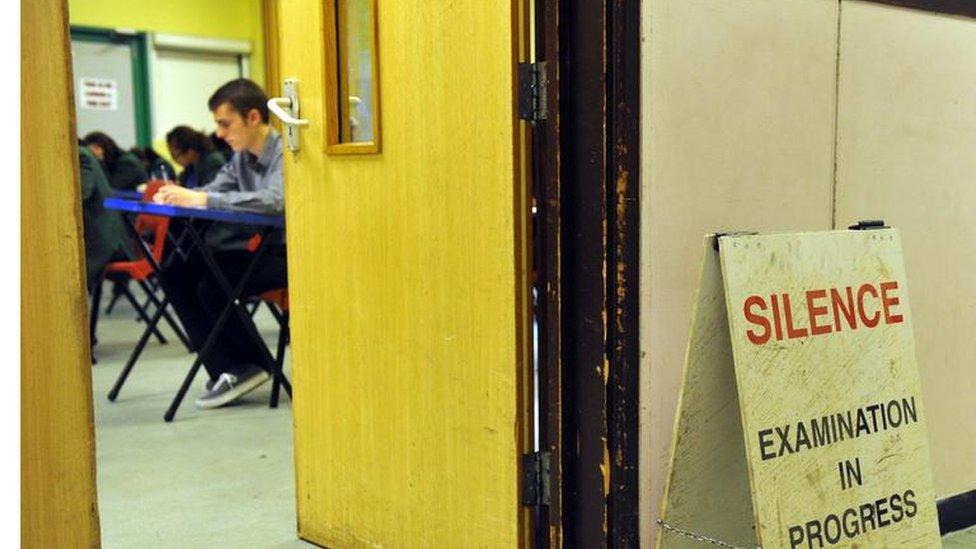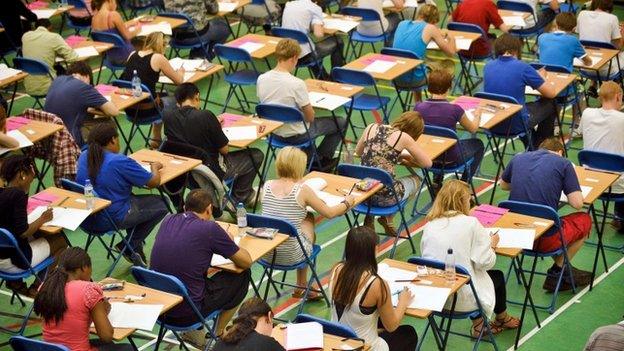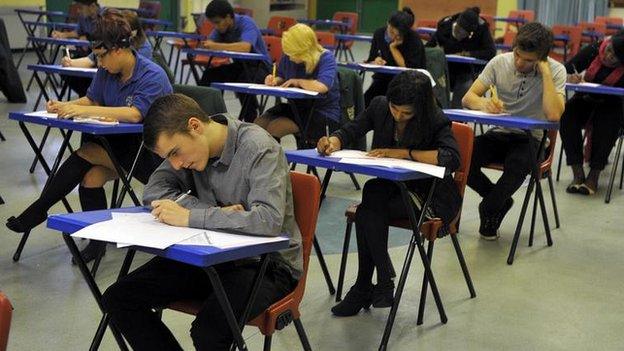Exam appeals overhaul 'fundamentally flawed', say head teachers
- Published

The proposals fail to challenge the 'key problem' of inaccurate marking, say head teachers
Plans to overhaul the exam appeals system in England will make it more unfair, say head teachers.
The proposals, from exams regulator Ofqual, will make it harder to appeal against GCSE and A-level results, say two leading head teachers' groups.
The proposals include marks only being changed if an examiner has made an error in applying the marking scheme, or adding up the marks.
Ofqual says it wants the new system to "focus squarely on errors".
But head teachers from the state and independent sectors say they are so concerned about the plan that they have submitted a joint response to the regulator's consultation on the proposed changes.
'Misdirected'
The National Association of Head Teachers (NAHT) and the Headmasters and Headmistresses Conference (HMC) call the plans "unpersuasive, misdirected and likely to make the current unsatisfactory situation worse".
The two groups of school leaders are particularly concerned about the proposal only to change marks if there has been a technical error in applying the marking scheme or counting marks.
They say it would mean that if there was a difference in academic judgement between the original marker and a second examiner carrying out a review, the original mark would stand.
They express "deep disappointment" that the plans have "failed to tackle the key problem of ensuring accurate first-time marks for all candidates".
They say Ofqual should respond to a "dramatic rise in inaccurate grades over the past five years... by ensuring a rigorous re-marking process".
Last year more than 90,000 GCSE and A-level results were changed after challenges to grades awarded in the summer, according to annual figures from the regulator.
This was the highest on record, an increase of 17% on 2014 and almost double the rate three years previously.
The heads argue Ofqual's plan "perversely" puts more trust in the original mark, making it harder and more costly to challenge rogue grades successfully.
Their submission argues for a centrally-financed re-marking fund which would cost "at most" 45p per candidate entry.
HMC chairman Chris King said Ofqual's proposals were "unfair, fundamentally flawed and likely to put even more pupils' life chances at risk".
"The approach seems to be: 'We have too many complaints; let's make it harder to complain.'
"This is no way to restore confidence in fairness and accuracy."

Last year more than 90,000 GCSE and A-level results were changed after challenges to grades
NAHT general secretary Russell Hobby said students were "entitled to a system that gets the marks right first time and is easy to challenge if something goes awry.
"Their futures depend on this and their hard work demands it.
"These proposals represent a step backwards and risk prioritising the system over the individual."
'Significant research'
But Julie Swan, Ofqual's acting director for general qualifications, said the proposals had been put together after "significant" empirical research and conversations with "teachers, schools and others".
"The concept that students are either given a 'right mark' or a 'wrong mark' is a misunderstanding," she said.
"Often more than one mark can be a fair mark for a script. There is no question that marking mistakes should be avoided and corrected if they happen, but differences of professional judgement are a very different matter.
"The current system can lead some students to get a higher mark on review, even when the first mark was entirely consistent with the mark scheme. That is unfair to those who do not seek a review.
"Of course where the first result is not reasonable, and the mark scheme was applied incorrectly, these errors should be corrected and a new mark awarded," said Ms Swan.
- Published10 December 2015

- Published14 October 2015
